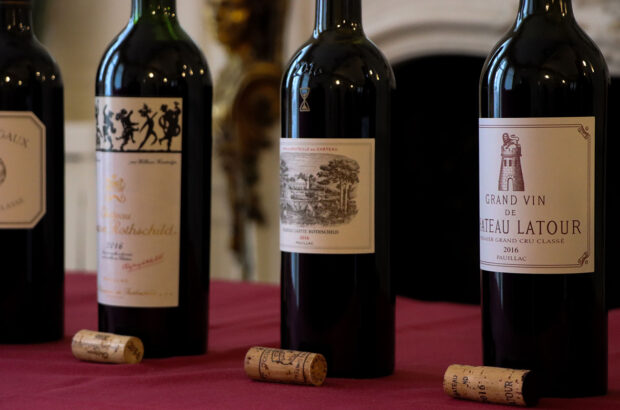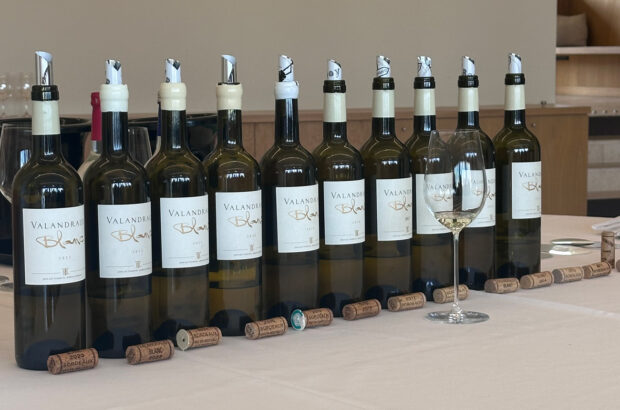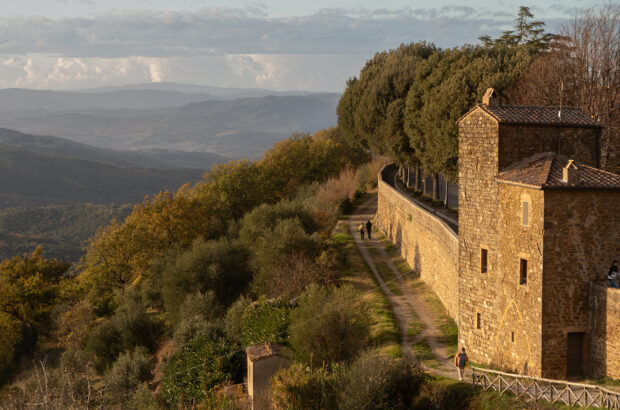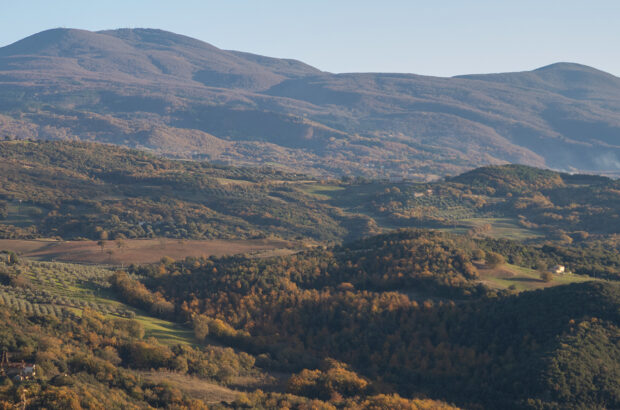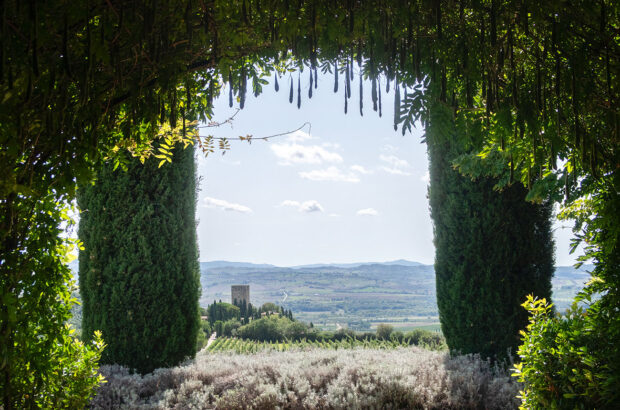When we take our first steps in wine study, we learn about famous appellations, permitted grape varieties and myriad regulations – often strange, at least to the newcomer. This is how I started to piece together the ‘official’ version of the wine world.
Was it the same for you? But right now, many producers in Spain are operating outside the rules governed by their denominación de origen (DO) – the Spanish equivalent of appellation.
Some of their wines are among the best in Spain and are either classified within a PGI (protected geographical indication) – a defined wider area that has less demanding specifications – or as Vino de España or Vino Varietal, broad classifications largely unburdened by geographical limitations or production-method stipulations.
There are many reasons for producers to classify their wines in less restrictive categories, and we will examine several of these.
{"content":"PHA+Rmlyc3QsIGl0IGlzIGltcG9ydGFudCB0byBleHBsYWluIHRoYXQgdGhpcyBpcyBub3QgYW4gYW50aS1ETyByYW50ITwvcD4KPHA+PGRpdiBjbGFzcz0iYWQtY29udGFpbmVyIGFkLWNvbnRhaW5lci0tbW9iaWxlIj48ZGl2IGlkPSJwb3N0LWlubGluZS0yIiBjbGFzcz0iaXBjLWFkdmVydCI+PC9kaXY+PC9kaXY+PC9wPgo8cD5UaGUgcHJvYmxlbXMgYW5kIGFkdmFudGFnZXMgb2YgRE9zIHZhcnkgZnJvbSByZWdpb24gdG8gcmVnaW9uLCBzb21lIGJlaW5nIHJlbGF0aXZlbHkgZnJlZSBmcm9tIGlzc3VlcywgYnV0IG90aGVycyBzZWVtaW5nbHkgaW5mbGljdGluZyBhIGdyZWF0IGRlYWwgb2Ygc2VsZi1oYXJtIGFzIGEgcmVzdWx0IG9mIHBvbGl0aWNzLCBpbnRyYW5zaWdlbmNlIG9yIGJvdGguPC9wPgo8cD5TcGFpbuKAmXMgRE8gc3lzdGVtIGRvZXMgYSBsb3Qgb2Ygd29yayBvbiBiZWhhbGYgb2YgaXRzIHByb2R1Y2VycyB0byBwcm90ZWN0IHZpdGljdWx0dXJhbCByZWdpb25zIGFuZCBwcm9tb3RlIHRoZW0gdGhyb3VnaG91dCB0aGUgd29ybGQuPC9wPgo8cD5PbiB0aGUgb3RoZXIgaGFuZCwgbWFueSBwcm9kdWNlcnMgZmFjZSByb2FkYmxvY2tzIHRoYXQgc3RlbSBmcm9tIERPIHJlZ3VsYXRpb25zIHdoaWNoIGhhdmUsIGluIG1hbnkgY2FzZXMsIGZhaWxlZCB0byBhZGFwdCB0byB0aGUgY2hhbGxlbmdlcyBhbmQgYW1iaXRpb25zIG9mIHByb2R1Y2Vycy48L3A+CjxkaXYgY2xhc3M9ImFkLWNvbnRhaW5lciBhZC1jb250YWluZXItLW1vYmlsZSI+PGRpdiBpZD0icG9zdC1pbmxpbmUtMyIgY2xhc3M9ImlwYy1hZHZlcnQiPjwvZGl2PjwvZGl2Pgo8cD5BbmQgdGhlbiB0aGVyZSBhcmUgcHJvZHVjZXJzIHdobyBhcmUgc2ltcGx5IGZvcmNlZCBieSBnZW9ncmFwaHkgb3Igc3R5bGUgdG8gdGhpbmsgb3V0c2lkZSB0aGUgYm94LCBvciByYXRoZXIgaW4gdGhpcyBjYXNlLCBvdXRzaWRlIERPIGJvcmRlcnMuPC9wPgo8aDI+VGhlIFNwYW5pc2ggbWFya2V0PC9oMj4KPGRpdiBpZD0iYXR0YWNobWVudF81Njg5MjEiIHN0eWxlPSJ3aWR0aDogMTMxMHB4IiBjbGFzcz0id3AtY2FwdGlvbiBhbGlnbm5vbmUiPjxpbWcgZmV0Y2hwcmlvcml0eT0iaGlnaCIgZGVjb2Rpbmc9ImFzeW5jIiBhcmlhLWRlc2NyaWJlZGJ5PSJjYXB0aW9uLWF0dGFjaG1lbnQtNTY4OTIxIiBjbGFzcz0ibGF6eWxvYWQgYmx1ci11cCBzaXplLWZ1bGwgd3AtaW1hZ2UtNTY4OTIxIiBkYXRhLXByb2Nlc3NlZCBzcmM9Imh0dHBzOi8vd3d3LmRlY2FudGVyLmNvbS5tYXN0ZXIucHVibGljLmtleXN0b25lLXByb2QtZWtzLWV1dzEuZnV0dXJlcGxjLmVuZ2luZWVyaW5nL3dwLWNvbnRlbnQvdGhlbWVzL3NpbWJhLXRoZW1lL2Fzc2V0cy9pbWFnZXMvcGxhY2Vob2xkZXIucG5nIiBkYXRhLXNyYz0iaHR0cHM6Ly9rZXlhc3NldHMudGltZWluY3VrLm5ldC9pbnNwaXJld3AvbGl2ZS93cC1jb250ZW50L3VwbG9hZHMvc2l0ZXMvMzQvMjAyNS8xMC9ERVMzMTYud2luZXNfd2l0aG91dF9kby5ib2RlZ2FzX3ZlcnVtLmpwZyIgYWx0PSIiIHdpZHRoPSIxMzAwIiBoZWlnaHQ9IjEwODEiIGRhdGEtc2l6ZXM9ImF1dG8iIGRhdGEtc3Jjc2V0PSJodHRwczovL2tleWFzc2V0cy50aW1laW5jdWsubmV0L2luc3BpcmV3cC9saXZlL3dwLWNvbnRlbnQvdXBsb2Fkcy9zaXRlcy8zNC8yMDI1LzEwL0RFUzMxNi53aW5lc193aXRob3V0X2RvLmJvZGVnYXNfdmVydW0uanBnIDEzMDB3LCBodHRwczovL2tleWFzc2V0cy50aW1laW5jdWsubmV0L2luc3BpcmV3cC9saXZlL3dwLWNvbnRlbnQvdXBsb2Fkcy9zaXRlcy8zNC8yMDI1LzEwL0RFUzMxNi53aW5lc193aXRob3V0X2RvLmJvZGVnYXNfdmVydW0tMzAweDI0OS5qcGcgMzAwdywgaHR0cHM6Ly9rZXlhc3NldHMudGltZWluY3VrLm5ldC9pbnNwaXJld3AvbGl2ZS93cC1jb250ZW50L3VwbG9hZHMvc2l0ZXMvMzQvMjAyNS8xMC9ERVMzMTYud2luZXNfd2l0aG91dF9kby5ib2RlZ2FzX3ZlcnVtLTYzMHg1MjQuanBnIDYzMHcsIGh0dHBzOi8va2V5YXNzZXRzLnRpbWVpbmN1ay5uZXQvaW5zcGlyZXdwL2xpdmUvd3AtY29udGVudC91cGxvYWRzL3NpdGVzLzM0LzIwMjUvMTAvREVTMzE2LndpbmVzX3dpdGhvdXRfZG8uYm9kZWdhc192ZXJ1bS0xMzV4MTEyLmpwZyAxMzV3LCBodHRwczovL2tleWFzc2V0cy50aW1laW5jdWsubmV0L2luc3BpcmV3cC9saXZlL3dwLWNvbnRlbnQvdXBsb2Fkcy9zaXRlcy8zNC8yMDI1LzEwL0RFUzMxNi53aW5lc193aXRob3V0X2RvLmJvZGVnYXNfdmVydW0tMzIweDI2Ni5qcGcgMzIwdywgaHR0cHM6Ly9rZXlhc3NldHMudGltZWluY3VrLm5ldC9pbnNwaXJld3AvbGl2ZS93cC1jb250ZW50L3VwbG9hZHMvc2l0ZXMvMzQvMjAyNS8xMC9ERVMzMTYud2luZXNfd2l0aG91dF9kby5ib2RlZ2FzX3ZlcnVtLTYyMHg1MTYuanBnIDYyMHcsIGh0dHBzOi8va2V5YXNzZXRzLnRpbWVpbmN1ay5uZXQvaW5zcGlyZXdwL2xpdmUvd3AtY29udGVudC91cGxvYWRzL3NpdGVzLzM0LzIwMjUvMTAvREVTMzE2LndpbmVzX3dpdGhvdXRfZG8uYm9kZWdhc192ZXJ1bS05MjB4NzY1LmpwZyA5MjB3LCBodHRwczovL2tleWFzc2V0cy50aW1laW5jdWsubmV0L2luc3BpcmV3cC9saXZlL3dwLWNvbnRlbnQvdXBsb2Fkcy9zaXRlcy8zNC8yMDI1LzEwL0RFUzMxNi53aW5lc193aXRob3V0X2RvLmJvZGVnYXNfdmVydW0tMTIyMHgxMDE0LmpwZyAxMjIwdyIgc2l6ZXM9IihtYXgtd2lkdGg6IDEzMDBweCkgMTAwdncsIDEzMDBweCIgLz48cCBpZD0iY2FwdGlvbi1hdHRhY2htZW50LTU2ODkyMSIgY2xhc3M9IndwLWNhcHRpb24tdGV4dCI+Qm9kZWdhcyBWZXJ1bTwvcD48L2Rpdj4KPGRpdiBjbGFzcz0iYWQtY29udGFpbmVyIGFkLWNvbnRhaW5lci0tbW9iaWxlIj48ZGl2IGlkPSJwb3N0LWlubGluZS00IiBjbGFzcz0iaXBjLWFkdmVydCI+PC9kaXY+PC9kaXY+CjxwPkluIHRoZSBTcGFuaXNoIGRvbWVzdGljIG1hcmtldCwgbW9zdCBjb25zdW1lcnMgZmF2b3VyIHdpbmVzIGZyb20gRE9zLiBJbiBhIDIwMjQgcmVwb3J0ICg8ZW0+Q29uc3VtbyBhbGltZW50YXJpbyBlbiBFc3Bhw7FhOiBJbmZvcm1lIGFubnVhbCBkZWwgY29uc3VtbyBhbGltZW50YXJpbyBlbiBFc3Bhw7FhPC9lbT4gMjAyNCkgYnkgTUFQQSwgdGhlIGNvdW50cnnigJlzIG1pbmlzdHJ5IG9mIGFncmljdWx0dXJlLCBmaXNoaW5nIGFuZCBmb29kLCBpdCB3YXMgbm90ZWQgdGhhdCBETyB3aW5lcyBtYWRlIHVwIDUwLjglIG9mIHRoZSB2b2x1bWUgb2Ygd2luZSBjb25zdW1lZCB3aXRoaW4gU3BhaW4sIGJ1dCBhbiBldmVuIGJpZ2dlciA3My44JSBvZiB0aGUgdG90YWwgdmFsdWUgb2Ygd2luZSBzYWxlcy48L3A+CjxwPkluIGNvbnRyYXN0LCB3aW5lcyB3aXRoIG5laXRoZXIgYSBETyBub3IgUEdJIGNsYXNzaWZpY2F0aW9uIChpZSwgVmlubyBkZSBFc3Bhw7FhKSBjb25zdGl0dXRlZCBvbmx5IDQxLjklIG9mIHRoZSB2b2x1bWUgc29sZCBhbmQgZXZlbiBsZXNzIGluIHZhbHVlLCBhdCAyMCUuIEFuZCB3aW5lcyBjbGFzc2lmaWVkIGluIHRoZSBQR0kgY2F0ZWdvcnkgb25seSBhdHRyYWN0ZWQgNyUgb2YgdGhlIHZvbHVtZSBvZiB3aW5lIHNhbGVzLCBhbmQgYSBtaXNlcmx5IDUuNSUgb2YgdmFsdWUuPC9wPgo8ZGl2IGNsYXNzPSJhZC1jb250YWluZXIgYWQtY29udGFpbmVyLS1tb2JpbGUiPjxkaXYgaWQ9InBvc3QtaW5saW5lLTUiIGNsYXNzPSJpcGMtYWR2ZXJ0Ij48L2Rpdj48L2Rpdj4KPHA+VHJhZGl0aW9uYWxseSwgaW4gdGhlIFNwYW5pc2ggbWFya2V0LCBQR0kgYW5kIFZpbm8gZGUgRXNwYcOxYSBjbGFzc2lmaWNhdGlvbnMgaGF2ZSBiZWVuIHNlZW4gYXMgaW5mZXJpb3IuIFRoaXMgaGFzIGJlZW4gcmVwbGljYXRlZCBpbnRlcm5hdGlvbmFsbHksIHdpdGggdGhvc2Ugd2luZXMgbWFraW5nIHVwIHRoZSBjaGVhcGVyLCB2YWx1ZSBwcm9wb3NpdGlvbnMgaW4gbWFqb3IgcmV0YWlsLjwvcD4KPHA+VGhlcmUgaGFzIGJlZW4gYSBwZXJjZXB0aW9uIHRoYXQgRE8gd2luZXMgbXVzdCBiZSBiZXR0ZXIgcXVhbGl0eSBiZWNhdXNlIG9mIHN0cmljdGVyIHZpdGljdWx0dXJhbCByZXF1aXJlbWVudHMsIHdoaWxlIHdpbmVzIG1hZGUgb3V0c2lkZSBETyByZWd1bGF0aW9ucyBoYXZlIG9mdGVuIGNvbWUgZnJvbSBoaWdoZXIteWllbGRpbmcsIHBvb3Jlci1xdWFsaXR5IHZpbmVzLjwvcD4KPGgyPkZyZWUgc3Bpcml0czwvaDI+CjxkaXYgaWQ9ImF0dGFjaG1lbnRfNTY4OTIyIiBzdHlsZT0id2lkdGg6IDg5MHB4IiBjbGFzcz0id3AtY2FwdGlvbiBhbGlnbm5vbmUiPjxpbWcgZGVjb2Rpbmc9ImFzeW5jIiBhcmlhLWRlc2NyaWJlZGJ5PSJjYXB0aW9uLWF0dGFjaG1lbnQtNTY4OTIyIiBjbGFzcz0ibGF6eWxvYWQgYmx1ci11cCB3cC1pbWFnZS01Njg5MjIgc2l6ZS1mdWxsIiBkYXRhLXByb2Nlc3NlZCBzcmM9Imh0dHBzOi8vd3d3LmRlY2FudGVyLmNvbS5tYXN0ZXIucHVibGljLmtleXN0b25lLXByb2QtZWtzLWV1dzEuZnV0dXJlcGxjLmVuZ2luZWVyaW5nL3dwLWNvbnRlbnQvdGhlbWVzL3NpbWJhLXRoZW1lL2Fzc2V0cy9pbWFnZXMvcGxhY2Vob2xkZXIucG5nIiBkYXRhLXNyYz0iaHR0cHM6Ly9rZXlhc3NldHMudGltZWluY3VrLm5ldC9pbnNwaXJld3AvbGl2ZS93cC1jb250ZW50L3VwbG9hZHMvc2l0ZXMvMzQvMjAyNS8xMC9ERVMzMTYud2luZXNfd2l0aG91dF9kby5hbm5hYmVsbGVfYm9ycmFfZ3JhcGVfcGlja2luZy5qcGciIGFsdD0iIiB3aWR0aD0iODgwIiBoZWlnaHQ9IjEzMDAiIGRhdGEtc2l6ZXM9ImF1dG8iIGRhdGEtc3Jjc2V0PSJodHRwczovL2tleWFzc2V0cy50aW1laW5jdWsubmV0L2luc3BpcmV3cC9saXZlL3dwLWNvbnRlbnQvdXBsb2Fkcy9zaXRlcy8zNC8yMDI1LzEwL0RFUzMxNi53aW5lc193aXRob3V0X2RvLmFubmFiZWxsZV9ib3JyYV9ncmFwZV9waWNraW5nLmpwZyA4ODB3LCBodHRwczovL2tleWFzc2V0cy50aW1laW5jdWsubmV0L2luc3BpcmV3cC9saXZlL3dwLWNvbnRlbnQvdXBsb2Fkcy9zaXRlcy8zNC8yMDI1LzEwL0RFUzMxNi53aW5lc193aXRob3V0X2RvLmFubmFiZWxsZV9ib3JyYV9ncmFwZV9waWNraW5nLTMwMHg0NDMuanBnIDMwMHcsIGh0dHBzOi8va2V5YXNzZXRzLnRpbWVpbmN1ay5uZXQvaW5zcGlyZXdwL2xpdmUvd3AtY29udGVudC91cGxvYWRzL3NpdGVzLzM0LzIwMjUvMTAvREVTMzE2LndpbmVzX3dpdGhvdXRfZG8uYW5uYWJlbGxlX2JvcnJhX2dyYXBlX3BpY2tpbmctNTYyeDgzMC5qcGcgNTYydywgaHR0cHM6Ly9rZXlhc3NldHMudGltZWluY3VrLm5ldC9pbnNwaXJld3AvbGl2ZS93cC1jb250ZW50L3VwbG9hZHMvc2l0ZXMvMzQvMjAyNS8xMC9ERVMzMTYud2luZXNfd2l0aG91dF9kby5hbm5hYmVsbGVfYm9ycmFfZ3JhcGVfcGlja2luZy05MXgxMzUuanBnIDkxdywgaHR0cHM6Ly9rZXlhc3NldHMudGltZWluY3VrLm5ldC9pbnNwaXJld3AvbGl2ZS93cC1jb250ZW50L3VwbG9hZHMvc2l0ZXMvMzQvMjAyNS8xMC9ERVMzMTYud2luZXNfd2l0aG91dF9kby5hbm5hYmVsbGVfYm9ycmFfZ3JhcGVfcGlja2luZy0yMTd4MzIwLmpwZyAyMTd3LCBodHRwczovL2tleWFzc2V0cy50aW1laW5jdWsubmV0L2luc3BpcmV3cC9saXZlL3dwLWNvbnRlbnQvdXBsb2Fkcy9zaXRlcy8zNC8yMDI1LzEwL0RFUzMxNi53aW5lc193aXRob3V0X2RvLmFubmFiZWxsZV9ib3JyYV9ncmFwZV9waWNraW5nLTQyMHg2MjAuanBnIDQyMHcsIGh0dHBzOi8va2V5YXNzZXRzLnRpbWVpbmN1ay5uZXQvaW5zcGlyZXdwL2xpdmUvd3AtY29udGVudC91cGxvYWRzL3NpdGVzLzM0LzIwMjUvMTAvREVTMzE2LndpbmVzX3dpdGhvdXRfZG8uYW5uYWJlbGxlX2JvcnJhX2dyYXBlX3BpY2tpbmctNjIzeDkyMC5qcGcgNjIzdywgaHR0cHM6Ly9rZXlhc3NldHMudGltZWluY3VrLm5ldC9pbnNwaXJld3AvbGl2ZS93cC1jb250ZW50L3VwbG9hZHMvc2l0ZXMvMzQvMjAyNS8xMC9ERVMzMTYud2luZXNfd2l0aG91dF9kby5hbm5hYmVsbGVfYm9ycmFfZ3JhcGVfcGlja2luZy04MjZ4MTIyMC5qcGcgODI2dyIgc2l6ZXM9IihtYXgtd2lkdGg6IDg4MHB4KSAxMDB2dywgODgwcHgiIC8+PHAgaWQ9ImNhcHRpb24tYXR0YWNobWVudC01Njg5MjIiIGNsYXNzPSJ3cC1jYXB0aW9uLXRleHQiPkFubmFiZWxsZSBCb3JyYTwvcD48L2Rpdj4KPHA+QSBuZXcgZ2VuZXJhdGlvbiBvZiB3aW5lbWFrZXJzIGlzIGNoYW5naW5nIHRoYXQgaW1hZ2UuIEVsw61hcyBMw7NwZXogTW9udGVybywgb3duZXIgYW5kIHdpbmVtYWtlciBhdCBCb2RlZ2FzIFZlcnVtIGluIFRvbWVsbG9zbywgMTUwa20gc291dGhlYXN0IG9mIE1hZHJpZCwgaGFzIGJlZW4gY29tbWl0dGVkIHRvIGV4cGVyaW1lbnRhdGlvbiBzaW5jZSBzdGFydGluZyBoaXMgcHJvamVjdCBpbiAyMDA1LjwvcD4KPHA+UmF0aGVyIHRoYW4gdGhlIHdpbmVzIGJlaW5nIGNsYXNzaWZpZWQgd2l0aGluIHRoZSBETyBDYXN0aWxsYS1MYSBNYW5jaGEsIHRoZXkgYXJlIGNlcnRpZmllZCB3aXRoaW4gdGhlIGJyb2FkZXIgUEdJIG9mIFZpbm8gZGUgbGEgVGllcnJhIGRlIENhc3RpbGxhLjwvcD4KPHA+4oCYV2Ugd2FudGVkIG1vcmUgZnJlZWRvbSB0byBwbGF5IHdpdGggZGlmZmVyZW50IGdyYXBlcywgd2luZW1ha2luZyBtZXRob2RzIGFuZCBhZ2Vpbmcgb3B0aW9ucy4gV2Ugd2FudGVkIHRvIGJlIGNyZWF0aXZlIGFuZCB0YWtlIHJpc2tzLOKAmSBMw7NwZXogZXhwbGFpbnMuIOKAmFdlIGFyZSByZXByZXNlbnRpbmcgQ2FzdGlsbGEtTGEgTWFuY2hhIGluIG91ciBvd24gd2F5LuKAmTwvcD4KPHA+QW5vdGhlciB5b3VuZyB3aW5lbWFrZXIsIEFubmFiZWxsZSBCb3JyYSAocGljdHVyZWQgYWJvdmUpLCByZWxlYXNlZCBoZXIgZmlyc3QgdmludGFnZSBmcm9tIFZpbm9zIGRlIEJlbGxpdGUgaW4gMjAyMiBmcm9tIHZpbmV5YXJkcyBjbG9zZSB0byBPbGl0ZSBpbiBOYXZhcnJhLiDigJhXZeKAmXJlIG91dHNpZGUgdGhlIERPIGJlY2F1c2Ugb3VyIHdpbmVzIGFyZSBtYWRlIGluIHN1Y2ggYSBjb250cmFzdGluZyBzdHlsZSB0byB3aGF04oCZcyB0eXBpY2FsIGluIERPIE5hdmFycmEsIGVzcGVjaWFsbHkgd2l0aCBvdXIgYmlvZHluYW1pYyBhcHByb2FjaCwgd2hvbGUtY2x1c3RlciBmZXJtZW50YXRpb25zIGFuZCBsb3dlciBhbGNvaG9sLOKAmSBCb3JyYSBleHBsYWlucy48L3A+CjxwPlNoZSBiZWxpZXZlcyB0aGF0IGJlaW5nIG91dHNpZGUgdGhlIERPIGdpdmVzIGhlciB0aGUgZnJlZWRvbSB0byBmb2xsb3cgaGVyIG93biBwYXRoLiBCdXQgaXMgdGhlcmUgYSBkb3duc2lkZT8g4oCYSXQgYWxzbyBkZWZpbml0ZWx5IG1lYW5zIGxvc2luZyB0aGUgYmVuZWZpdHMgb2YgYSBETywgbGlrZSBvcmdhbmlzZWQgdGFzdGluZ3MgYW5kIHRyaXBzLuKAmTwvcD4KPHA+QWxzbyBpbiBOYXZhcnJhLCBBc2VnaW5vbGF6YSB5IExldW5kYSBpcyBhIHNtYWxsIHByb2plY3QgdGhhdCBzdGFydGVkIHNlbGxpbmcgd2l0aCB0aGUgMjAxNyB2aW50YWdlLCBvZiB3aGljaCB0aGVyZSB3ZXJlIG9ubHkgMiw0MDAgYm90dGxlcy4g4oCYV2UgaGF2ZSBuZXZlciBiZWVuIGluc2lkZSB0aGUgRE8sIHNvIHdlIGRvbuKAmXQga25vdyBob3cgaXQgZnVuY3Rpb25zIGFuZCBjYW5ub3QgY3JpdGljaXNlIGl0LOKAmSBpcyBob3cgb3duZXJzIEpvbiBBc2VnaW5vbGF6YSBhbmQgUGVkcm8gTGV1bmRhIHB1dCBpdC48L3A+CjxwPkJ1dCB0aGV5IGRvbuKAmXQgc3Vic2NyaWJlIHRvIHRoZSByZWd1bGF0aW9ucyB0aGF0IGNsYXNzaWZ5IHdpbmVzIGFjY29yZGluZyB0byB0aGUgYWdlaW5nIHByb2Nlc3MgaW4gdGhlIHdpbmVyeTogYSBzdGlwdWxhdGlvbiBvZnRlbiBpbXBvc2VkIGJ5IHRoZSBsZWdhbCBmcmFtZXdvcmtzIG9mIERPcy48L3A+CjxwPuKAmE91ciB3YXkgb2YgdW5kZXJzdGFuZGluZyBvdXIgd2luZXMgaXMgYmFzZWQgb24gdGhlIHRlcnJvaXIgYW5kIHRoZSBsYW5kc2NhcGUgKHBhcmNlbHMsIGxpZXV4LWRpdHMsIHRvd25zIGFuZCByZWdpb25zKSzigJkgdGhleSBleHBsYWluLjwvcD4KPGgyPk9sZCByZWd1bGF0aW9ucyDigJMgbmV3IHN0eWxlczwvaDI+CjxkaXYgaWQ9ImF0dGFjaG1lbnRfNTY4OTIzIiBzdHlsZT0id2lkdGg6IDEzMTBweCIgY2xhc3M9IndwLWNhcHRpb24gYWxpZ25ub25lIj48aW1nIGRlY29kaW5nPSJhc3luYyIgYXJpYS1kZXNjcmliZWRieT0iY2FwdGlvbi1hdHRhY2htZW50LTU2ODkyMyIgY2xhc3M9Imxhenlsb2FkIGJsdXItdXAgd3AtaW1hZ2UtNTY4OTIzIHNpemUtZnVsbCIgZGF0YS1wcm9jZXNzZWQgc3JjPSJodHRwczovL3d3dy5kZWNhbnRlci5jb20ubWFzdGVyLnB1YmxpYy5rZXlzdG9uZS1wcm9kLWVrcy1ldXcxLmZ1dHVyZXBsYy5lbmdpbmVlcmluZy93cC1jb250ZW50L3RoZW1lcy9zaW1iYS10aGVtZS9hc3NldHMvaW1hZ2VzL3BsYWNlaG9sZGVyLnBuZyIgZGF0YS1zcmM9Imh0dHBzOi8va2V5YXNzZXRzLnRpbWVpbmN1ay5uZXQvaW5zcGlyZXdwL2xpdmUvd3AtY29udGVudC91cGxvYWRzL3NpdGVzLzM0LzIwMjUvMTAvREVTMzE2LndpbmVzX3dpdGhvdXRfZG8uZnJvbnRvbmlvX2NyZWRpdF9nYWJpX29ydGUuanBnIiBhbHQ9IiIgd2lkdGg9IjEzMDAiIGhlaWdodD0iOTEwIiBkYXRhLXNpemVzPSJhdXRvIiBkYXRhLXNyY3NldD0iaHR0cHM6Ly9rZXlhc3NldHMudGltZWluY3VrLm5ldC9pbnNwaXJld3AvbGl2ZS93cC1jb250ZW50L3VwbG9hZHMvc2l0ZXMvMzQvMjAyNS8xMC9ERVMzMTYud2luZXNfd2l0aG91dF9kby5mcm9udG9uaW9fY3JlZGl0X2dhYmlfb3J0ZS5qcGcgMTMwMHcsIGh0dHBzOi8va2V5YXNzZXRzLnRpbWVpbmN1ay5uZXQvaW5zcGlyZXdwL2xpdmUvd3AtY29udGVudC91cGxvYWRzL3NpdGVzLzM0LzIwMjUvMTAvREVTMzE2LndpbmVzX3dpdGhvdXRfZG8uZnJvbnRvbmlvX2NyZWRpdF9nYWJpX29ydGUtMzAweDIxMC5qcGcgMzAwdywgaHR0cHM6Ly9rZXlhc3NldHMudGltZWluY3VrLm5ldC9pbnNwaXJld3AvbGl2ZS93cC1jb250ZW50L3VwbG9hZHMvc2l0ZXMvMzQvMjAyNS8xMC9ERVMzMTYud2luZXNfd2l0aG91dF9kby5mcm9udG9uaW9fY3JlZGl0X2dhYmlfb3J0ZS02MzB4NDQxLmpwZyA2MzB3LCBodHRwczovL2tleWFzc2V0cy50aW1laW5jdWsubmV0L2luc3BpcmV3cC9saXZlL3dwLWNvbnRlbnQvdXBsb2Fkcy9zaXRlcy8zNC8yMDI1LzEwL0RFUzMxNi53aW5lc193aXRob3V0X2RvLmZyb250b25pb19jcmVkaXRfZ2FiaV9vcnRlLTEzNXg5NS5qcGcgMTM1dywgaHR0cHM6Ly9rZXlhc3NldHMudGltZWluY3VrLm5ldC9pbnNwaXJld3AvbGl2ZS93cC1jb250ZW50L3VwbG9hZHMvc2l0ZXMvMzQvMjAyNS8xMC9ERVMzMTYud2luZXNfd2l0aG91dF9kby5mcm9udG9uaW9fY3JlZGl0X2dhYmlfb3J0ZS0zMjB4MjI0LmpwZyAzMjB3LCBodHRwczovL2tleWFzc2V0cy50aW1laW5jdWsubmV0L2luc3BpcmV3cC9saXZlL3dwLWNvbnRlbnQvdXBsb2Fkcy9zaXRlcy8zNC8yMDI1LzEwL0RFUzMxNi53aW5lc193aXRob3V0X2RvLmZyb250b25pb19jcmVkaXRfZ2FiaV9vcnRlLTYyMHg0MzQuanBnIDYyMHcsIGh0dHBzOi8va2V5YXNzZXRzLnRpbWVpbmN1ay5uZXQvaW5zcGlyZXdwL2xpdmUvd3AtY29udGVudC91cGxvYWRzL3NpdGVzLzM0LzIwMjUvMTAvREVTMzE2LndpbmVzX3dpdGhvdXRfZG8uZnJvbnRvbmlvX2NyZWRpdF9nYWJpX29ydGUtOTIweDY0NC5qcGcgOTIwdywgaHR0cHM6Ly9rZXlhc3NldHMudGltZWluY3VrLm5ldC9pbnNwaXJld3AvbGl2ZS93cC1jb250ZW50L3VwbG9hZHMvc2l0ZXMvMzQvMjAyNS8xMC9ERVMzMTYud2luZXNfd2l0aG91dF9kby5mcm9udG9uaW9fY3JlZGl0X2dhYmlfb3J0ZS0xMjIweDg1NC5qcGcgMTIyMHciIHNpemVzPSIobWF4LXdpZHRoOiAxMzAwcHgpIDEwMHZ3LCAxMzAwcHgiIC8+PHAgaWQ9ImNhcHRpb24tYXR0YWNobWVudC01Njg5MjMiIGNsYXNzPSJ3cC1jYXB0aW9uLXRleHQiPlNvcnRpbmcgZnJlc2gtcGlja2VkIGZydWl0IGF0IEJvZGVnYXMgRnJvbnRvbmlvIGluIEFyYWfDs24uPC9wPjwvZGl2Pgo8cD5Tb21lIHByb2R1Y2VycyBzaW1wbHkgaGF2ZSBubyBjaG9pY2UuIE93bmVyIG9mIEJvZGVnYXMgTHVpcyBQw6lyZXogaW4gSmVyZXosIFdpbGx5IFDDqXJleiAobGVhZCBpbWFnZSksIG1ha2VzIG91dHN0YW5kaW5nIHVuZm9ydGlmaWVkIHdpbmUgb3IgVmlubyBkZSBQYXN0by4gVGhlIGdyYXBlcyBjb21lIGZyb20gc29tZSBvZiB0aGUgYmVzdCB2aW5leWFyZCBzaXRlcyBpbiBKZXJleiwgYnV0IHRoZXJlIGlzIG5vIGFsbG93YW5jZSBmb3IgdW5mb3J0aWZpZWQgd2luZXMgd2l0aGluIHRoZSBETyByZWd1bGF0aW9ucyDigJMgZm9yIG5vdy48L3A+CjxwPkEgbW92ZW1lbnQgdG8gaW5jb3Jwb3JhdGUgdGhlc2Ugd2luZXMgaW50byB0aGUgRE8gaXMgZ2F0aGVyaW5nIG1vbWVudHVtLCBob3dldmVyLjwvcD4KPHA+SW4gR2FsaWNpYSwgbm9ydGh3ZXN0IFNwYWluLCBGZWRlbGxvcyBkbyBDb3V0b+KAmXMgdGhyaWxsaW5nIHJlZCBCYXN0YXJkYSAobWFkZSBmcm9tIE1lcmVuemFvLCBhbHNvIGtub3duIGFzIEJhc3RhcmRvIGluIFBvcnR1Z2FsIGFuZCBUcm91c3NlYXUgaW4gSnVyYSwgZWFzdGVybiBGcmFuY2UpIGlzIG5vdyBtYWRlIGZyb20gZ3JhcGVzIGZyb20gYm90aCBzaWRlcyBvZiB0aGUgQmliZWkgcml2ZXIuPC9wPgo8cD5XaW5lbWFrZXIgQ2FybG9zICjigJhDdXJyb+KAmSkgQmFyZcOxbyBRdWludGFuYSBuYW1lcyBpdCDigJg8ZW0+dW4gdmlubyBjcmlvbGxvPC9lbT7igJkgKGEgY3Jlb2xlIHdpbmUpIHdpdGggcm9vdHMgKGxpdGVyYWxseSEpIGluIGJvdGggVmFsZGVvcnJhcyBhbmQgUmliZWlyYSBTYWNyYS4gUHJldmlvdXNseSB0aGlzIHdpbmUgd2FzIHByb2R1Y2VkIGZyb20gZ3JhcGVzIHdob2xseSB3aXRoaW4gdGhlIHJlZ2lvbiBvZiBSaWJlaXJhIFNhY3JhIGJ1dCB3YXMgc3RpbGwgY2xhc3NpZmllZCBvdXRzaWRlIHRoZSBETy48L3A+CjxwPkhvd2V2ZXIsIEJhcmXDsW8gaXMgbm93IG9wdGltaXN0aWMgYWJvdXQgdGhlIHJvbGUgb2YgdGhlIERPLiDigJhJdCBoYXMgbWFkZSByZWFsIHByb2dyZXNzIGluIHRlcm1zIG9mIHRoZSByZWd1bGF0aW9ucyBhbmQgaXMgdGFraW5nIHBvc2l0aXZlIGRlY2lzaW9ucyzigJkgaGUgcmVmbGVjdHMuPC9wPgo8cD5Eb2VzIGhlIHRoaW5rIHRoZXJlIGFyZSBzdGlsbCBtb3JlIGNoYW5nZXMgbmVlZGVkPyDigJhUaGV5IHNob3VsZCBwcm9tb3RlIHRoZSBvbGQgdmFyaWV0aWVzLCBidXQgSSB0aGluayB0aGV5IGhhdmUgYWxyZWFkeSBtYWRlIGEgbG90IG9mIHByb2dyZXNzIHdpdGggdGhpcy4gQWxzbywgdGhleSBzaG91bGQgb25seSBjZXJ0aWZ5IHRoZSB3aW5lcyBhY2NvcmRpbmcgdG8gdGhlIG9yaWdpbiBvZiB0aGUgZ3JhcGUsIG5vdCB0aGUgcXVhbGl0eSzigJkgaGUgYWRkcy4g4oCYVGhleSBzaG91bGQgbm90IGNsYXNzaWZ5IGJ5IG9yZ2Fub2xlcHRpYyBjaGFyYWN0ZXJpc3RpY3MsIG5vciBvbiB0aGUgYmFzaXMgb2YgdHlwaWNpdHksIGFzIHRoZXNlIGFyZSBzdWJqZWN0aXZlIGV2YWx1YXRpb25zLuKAmTwvcD4KPHA+RG93biBpbiB0aGUgTWVkaXRlcnJhbmVhbiBzb3V0aGVhc3QsIEpvcmdlIFBpZXJuYXMgKHBpY3R1cmVkKSBpcyBhIHlvdW5nIGdyb3dlciBhbmQgd2luZW1ha2VyIHdpdGggdmluZXlhcmRzIGluIHRoZSBNdXJjaWEgc3ViLXJlZ2lvbiBvZiBCdWxsYXMsIHdoZXJlIGhlIGNsYXNzaWZpZXMgaGlzIHdpbmVzIG91dHNpZGUgdGhlIERPLjwvcD4KPHA+SGUgaGFzIGNvbmNlcm5zIGFib3V0IHRoZSBlc3RhYmxpc2hlZCBpbnRlcmVzdHMgYW5kIG91dGRhdGVkIHdheXMgb2YgdGhpbmtpbmcgd2l0aGluIHRoZSBjb25zZWpvIHJlZ3VsYWRvciwgYnV0IGZlZWxzIHRoaW5ncyBjYW4gY2hhbmdlIG9yZ2FuaWNhbGx5IGFzIGEgeW91bmdlciBnZW5lcmF0aW9uIGJlY29tZXMgbW9yZSBpbnZvbHZlZC48L3A+CjxwPldoYXQgaW1wYWN0IHdvdWxkIHRoaXMgaGF2ZSBvbiB0aGUgd2luZW1ha2luZyBwcmFjdGljZXMgb2YgdGhlIHJlZ2lvbj8g4oCYSW4gb3VyIGNhc2UsIE1vbmFzdHJlbGwgYWJvdmUgTWVybG90IG9yIFRlbXByYW5pbGxvLOKAmSBzYXlzIFBpZXJuYXMuIOKAmEJ1c2h0cmFpbmVkIHZpbmVzIGluc3RlYWQgb2YgdHJlbGxpc2VkLCBvcmdhbmljIHJhdGhlciB0aGFuIGNvbnZlbnRpb25hbC4gT25jZSB5b3UgaGF2ZSB0aGlzIHVuZGVyIGNvbnRyb2wsIGxldCBlYWNoIHBlcnNvbiBldm9sdmUgdGhlIHdheSB0aGV5IHRoaW5rIHRoZXkgc2hvdWxkLuKAmTwvcD4KPGgyPkNvbnN1bWVyIGFjY2VwdGFuY2U8L2gyPgo8ZGl2IGlkPSJhdHRhY2htZW50XzU2ODkyNCIgc3R5bGU9IndpZHRoOiAxMzEwcHgiIGNsYXNzPSJ3cC1jYXB0aW9uIGFsaWdubm9uZSI+PGltZyBsb2FkaW5nPSJsYXp5IiBkZWNvZGluZz0iYXN5bmMiIGFyaWEtZGVzY3JpYmVkYnk9ImNhcHRpb24tYXR0YWNobWVudC01Njg5MjQiIGNsYXNzPSJsYXp5bG9hZCBibHVyLXVwIHNpemUtZnVsbCB3cC1pbWFnZS01Njg5MjQiIGRhdGEtcHJvY2Vzc2VkIHNyYz0iaHR0cHM6Ly93d3cuZGVjYW50ZXIuY29tLm1hc3Rlci5wdWJsaWMua2V5c3RvbmUtcHJvZC1la3MtZXV3MS5mdXR1cmVwbGMuZW5naW5lZXJpbmcvd3AtY29udGVudC90aGVtZXMvc2ltYmEtdGhlbWUvYXNzZXRzL2ltYWdlcy9wbGFjZWhvbGRlci5wbmciIGRhdGEtc3JjPSJodHRwczovL2tleWFzc2V0cy50aW1laW5jdWsubmV0L2luc3BpcmV3cC9saXZlL3dwLWNvbnRlbnQvdXBsb2Fkcy9zaXRlcy8zNC8yMDI1LzEwL0RFUzMxNi53aW5lc193aXRob3V0X2RvLmVucmljX3NvbGVyLmpwZyIgYWx0PSIiIHdpZHRoPSIxMzAwIiBoZWlnaHQ9IjkzNiIgZGF0YS1zaXplcz0iYXV0byIgZGF0YS1zcmNzZXQ9Imh0dHBzOi8va2V5YXNzZXRzLnRpbWVpbmN1ay5uZXQvaW5zcGlyZXdwL2xpdmUvd3AtY29udGVudC91cGxvYWRzL3NpdGVzLzM0LzIwMjUvMTAvREVTMzE2LndpbmVzX3dpdGhvdXRfZG8uZW5yaWNfc29sZXIuanBnIDEzMDB3LCBodHRwczovL2tleWFzc2V0cy50aW1laW5jdWsubmV0L2luc3BpcmV3cC9saXZlL3dwLWNvbnRlbnQvdXBsb2Fkcy9zaXRlcy8zNC8yMDI1LzEwL0RFUzMxNi53aW5lc193aXRob3V0X2RvLmVucmljX3NvbGVyLTMwMHgyMTYuanBnIDMwMHcsIGh0dHBzOi8va2V5YXNzZXRzLnRpbWVpbmN1ay5uZXQvaW5zcGlyZXdwL2xpdmUvd3AtY29udGVudC91cGxvYWRzL3NpdGVzLzM0LzIwMjUvMTAvREVTMzE2LndpbmVzX3dpdGhvdXRfZG8uZW5yaWNfc29sZXItNjMweDQ1NC5qcGcgNjMwdywgaHR0cHM6Ly9rZXlhc3NldHMudGltZWluY3VrLm5ldC9pbnNwaXJld3AvbGl2ZS93cC1jb250ZW50L3VwbG9hZHMvc2l0ZXMvMzQvMjAyNS8xMC9ERVMzMTYud2luZXNfd2l0aG91dF9kby5lbnJpY19zb2xlci0xMzV4OTcuanBnIDEzNXcsIGh0dHBzOi8va2V5YXNzZXRzLnRpbWVpbmN1ay5uZXQvaW5zcGlyZXdwL2xpdmUvd3AtY29udGVudC91cGxvYWRzL3NpdGVzLzM0LzIwMjUvMTAvREVTMzE2LndpbmVzX3dpdGhvdXRfZG8uZW5yaWNfc29sZXItMzIweDIzMC5qcGcgMzIwdywgaHR0cHM6Ly9rZXlhc3NldHMudGltZWluY3VrLm5ldC9pbnNwaXJld3AvbGl2ZS93cC1jb250ZW50L3VwbG9hZHMvc2l0ZXMvMzQvMjAyNS8xMC9ERVMzMTYud2luZXNfd2l0aG91dF9kby5lbnJpY19zb2xlci02MjB4NDQ2LmpwZyA2MjB3LCBodHRwczovL2tleWFzc2V0cy50aW1laW5jdWsubmV0L2luc3BpcmV3cC9saXZlL3dwLWNvbnRlbnQvdXBsb2Fkcy9zaXRlcy8zNC8yMDI1LzEwL0RFUzMxNi53aW5lc193aXRob3V0X2RvLmVucmljX3NvbGVyLTkyMHg2NjIuanBnIDkyMHcsIGh0dHBzOi8va2V5YXNzZXRzLnRpbWVpbmN1ay5uZXQvaW5zcGlyZXdwL2xpdmUvd3AtY29udGVudC91cGxvYWRzL3NpdGVzLzM0LzIwMjUvMTAvREVTMzE2LndpbmVzX3dpdGhvdXRfZG8uZW5yaWNfc29sZXItMTIyMHg4NzguanBnIDEyMjB3IiBzaXplcz0iKG1heC13aWR0aDogMTMwMHB4KSAxMDB2dywgMTMwMHB4IiAvPjxwIGlkPSJjYXB0aW9uLWF0dGFjaG1lbnQtNTY4OTI0IiBjbGFzcz0id3AtY2FwdGlvbi10ZXh0Ij5FbnJpYyBTb2xlciwgZm9ybWVyIHNvbW1lbGllciBhbmQgbm93IHdpbmVtYWtlciBpbiBQZW5lZMOoczwvcD48L2Rpdj4KPHA+QXMgUGllcm5hcyBleHBsYWlucywgbWFya2V0aW5nIHRoZSB3aW5lcyB0byByZWFjaCBuZXcgY29uc3VtZXJzIGNhbiBiZSBkaWZmaWN1bHQgd2l0aG91dCBETyBiYWNraW5nLiDigJhCeSBiZWluZyBvdXRzaWRlIHRoZSBETyB5b3UgbWlzcyBvdXQgb24gYXJ0aWNsZXMsIHByZXNlbnRhdGlvbnMsIHZpc2l0cyBmcm9tIGltcG9ydGVyIGdyb3VwcyBhbmQgb2ZmaWNpYWwgZXZlbnRzLOKAmSBoZSBjb25jZWRlcy4g4oCYQWxsIG9mIHRoYXQgdGFrZXMgYXdheSBhIGxvdCBvZiB2aXNpYmlsaXR5LCBzbyB0aGVyZSBhcmUgdmVyeSBmZXcgcG9zaXRpdmUgYXNwZWN0cy7igJk8L3A+CjxwPkhvd2V2ZXIsIHdoZW4gdGhvc2Ugd2luZXMgcmVhY2ggdGhlIGVuZCBjb25zdW1lciwgaXQgc2VlbXMgdGhlIHJlY2VwdGlvbiBpcyB2ZXJ5IHBvc2l0aXZlLiBFZHdpbmEgV2F0c29uLCBzZW5pb3Igd2luZSBidXllciBhdCBMb25kb24gcmV0YWlsZXIgRm9ydG51bSAmYW1wOyBNYXNvbiwgaGFzIHJlY2VudGx5IG1hZGUgY2hhbmdlcyB0byBpdHMgcmFuZ2UuPC9wPgo8cD7igJhXZeKAmXJlIG5vdyBtb3ZpbmcgYmV5b25kIGEgc2VsZWN0aW9uIG9uY2UgZG9taW5hdGVkIGJ5IFJpb2phIGFuZCBSaWJlcmEgZGVsIER1ZXJvIHRvIGNoYW1waW9uIGEgYnJvYWQgc3BlY3RydW0gb2YgU3BhbmlzaCB3aW5lcyDigJMgd2luZXMgd2l0aCBwZXJzb25hbGl0eSwgaXJyZXNwZWN0aXZlIG9mIG9yaWdpbizigJkgc2hlIHNheXMuPC9wPgo8cD5BIG5ldyBhZGRpdGlvbiB0byB0aGUgRm9ydG51bSAmYW1wOyBNYXNvbiBvd24tIGxhYmVsIHJhbmdlLCBhbiBvbGQtdmluZSBHYXJuYWNoYSBwcm9kdWNlZCBieSBCb2RlZ2FzIEZyb250b25pbyAobmVhciBaYXJhZ296YSwgQXJhZ8OzbikgYW5kIGNsYXNzaWZpZWQgYXMgYSB2YXJpZXRhbCB3aW5lICjCozE5LjUwKSwgaGFzIGJlY29tZSBhIGN1c3RvbWVyIGZhdm91cml0ZS48L3A+CjxwPuKAmFdoaWxlIGFwcGVsbGF0aW9ucyBzdGlsbCBtYXR0ZXIsIGluIFNwYWluIHRoZXJl4oCZcyBhIHJlZnJlc2hpbmcgZnJlZWRvbSBmb3IgY3VzdG9tZXJzIHRvIGxvb2sgYmV5b25kIGEgRE8gbGFiZWwsIGZvY3VzaW5nIGluc3RlYWQgb24gd2hhdOKAmXMgaW4gdGhlIGJvdHRsZSBhbmQgd2hvIGhhcyBtYWRlIGl0LOKAmSBXYXRzb24gYWRkcy48L3A+CjxkaXYgY2xhc3M9ImluamVjdGlvbiI+PC9kaXY+CjxwPlRoZXNlIHdpbmVzIHByb2R1Y2VkIG91dHNpZGUgYSBETyBtYXkgbm90IGNhcnJ5IGEgc3BlY2lmaWVkIGdlb2dyYXBoaWMgb3JpZ2luIG9uIHRoZSBsYWJlbCwgYnV0IHRoZSBiZXN0IGV4YW1wbGVzIHN0aWxsIGNvbW11bmljYXRlIGEgY2xlYXIgc2Vuc2Ugb2YgcGxhY2Ugd2l0aCBmcmVlZG9tIGFuZCBhdXRoZW50aWNpdHkuIFRoZSBvbmx5IHByb2JsZW0\/IFRoZXJlIGFyZSBub3cgc28gbWFueSBleGNlbGxlbnQgd2luZXMgdG8gdHJ5ITwvcD4KPHA+VGhlIDE4IHBpY2tzIHRoYXQgZm9sbG93IGFyZSBqdXN0IHNvbWUgZXhhbXBsZXMgb2YgdGhlIGV4Y2VsbGVudCBub24tRE8gd2luZXMgdGhhdCBjYW4gYmUgZm91bmTigKY8L3A+CjxwPgo="}
18 top-notch non-DO wines from around Spain
{}
{"wineId":"102002","displayCase":"standard","paywall":true}
{"wineId":"102003","displayCase":"standard","paywall":true}
{"wineId":"102004","displayCase":"standard","paywall":true}
{"wineId":"102005","displayCase":"standard","paywall":true}
{"wineId":"102006","displayCase":"standard","paywall":true}
{"wineId":"102007","displayCase":"standard","paywall":true}
{"wineId":"102008","displayCase":"standard","paywall":true}
{"wineId":"102009","displayCase":"standard","paywall":true}
{"wineId":"102010","displayCase":"standard","paywall":true}
{"wineId":"102011","displayCase":"standard","paywall":true}
{"wineId":"102012","displayCase":"standard","paywall":true}
{"wineId":"102013","displayCase":"standard","paywall":true}
{"wineId":"102014","displayCase":"standard","paywall":true}
{"wineId":"102015","displayCase":"standard","paywall":true}
{"wineId":"102016","displayCase":"standard","paywall":true}
{"wineId":"102017","displayCase":"standard","paywall":true}
{"wineId":"102018","displayCase":"standard","paywall":true}
{"wineId":"102019","displayCase":"standard","paywall":true}
{}
Related articles




